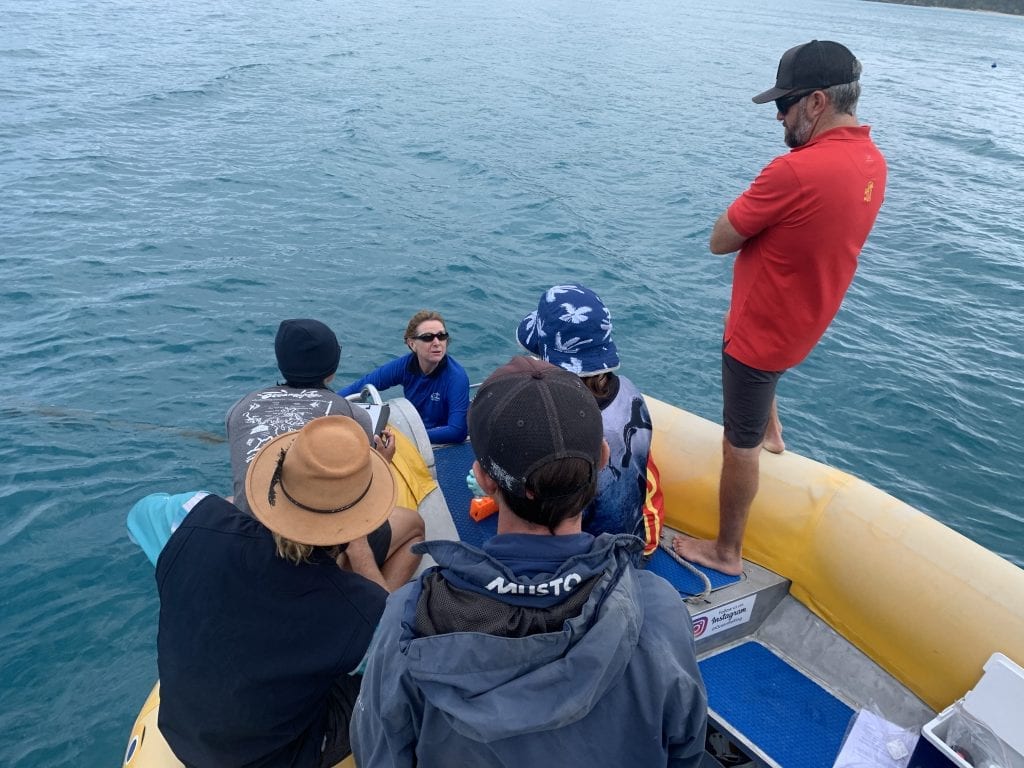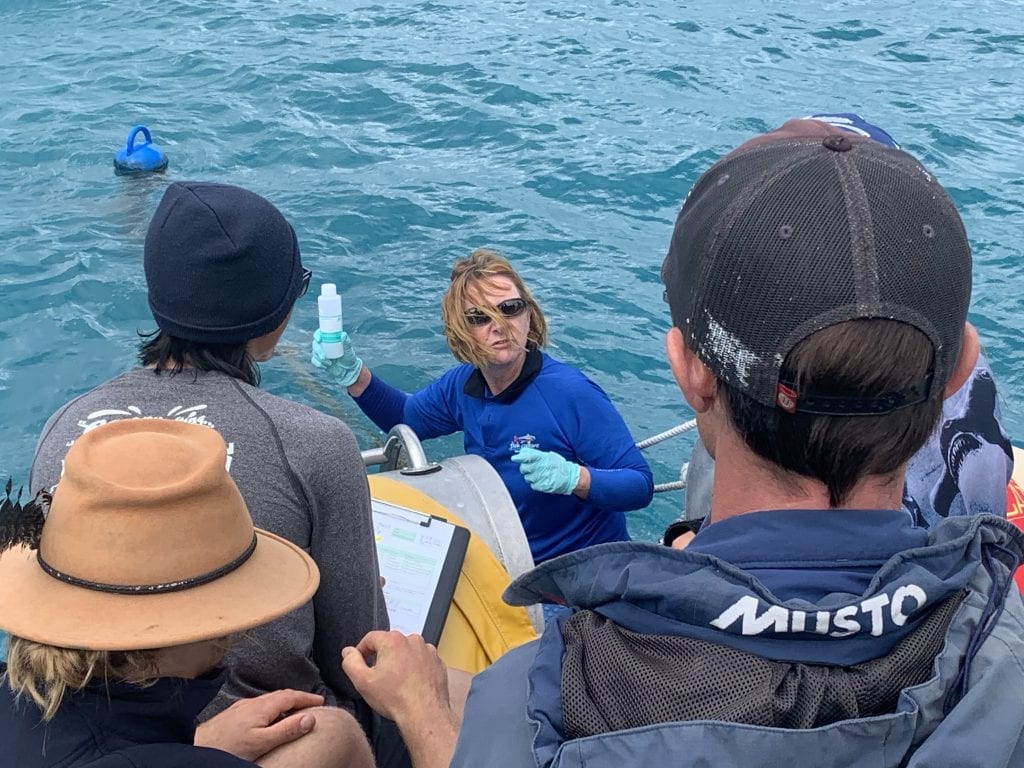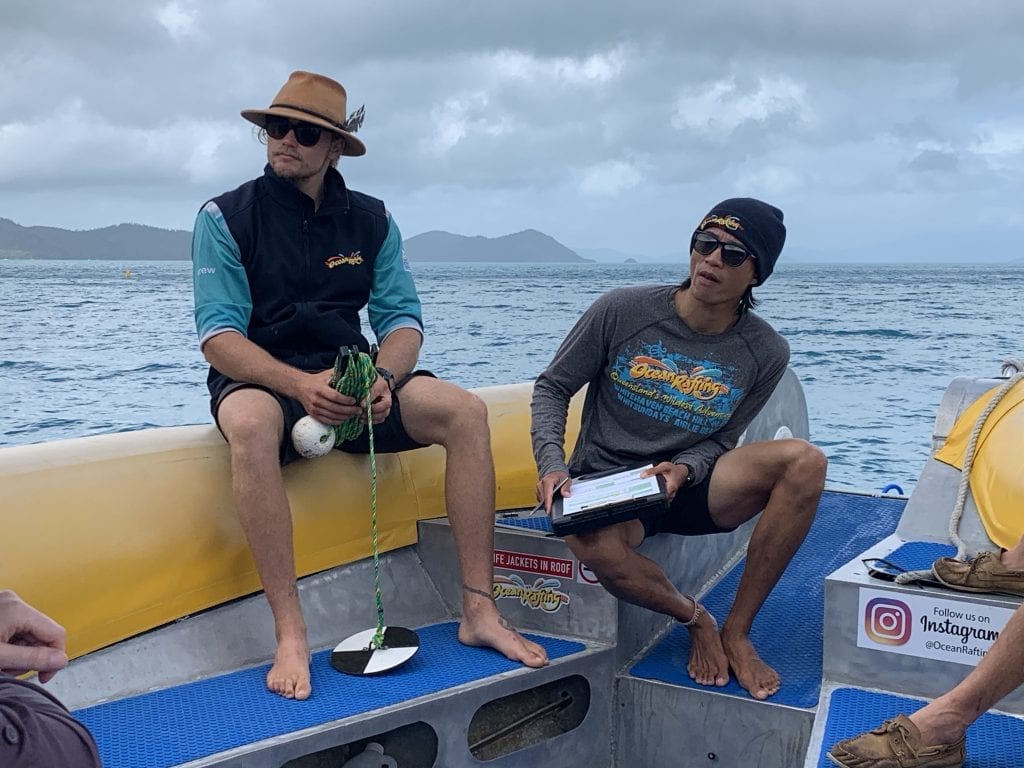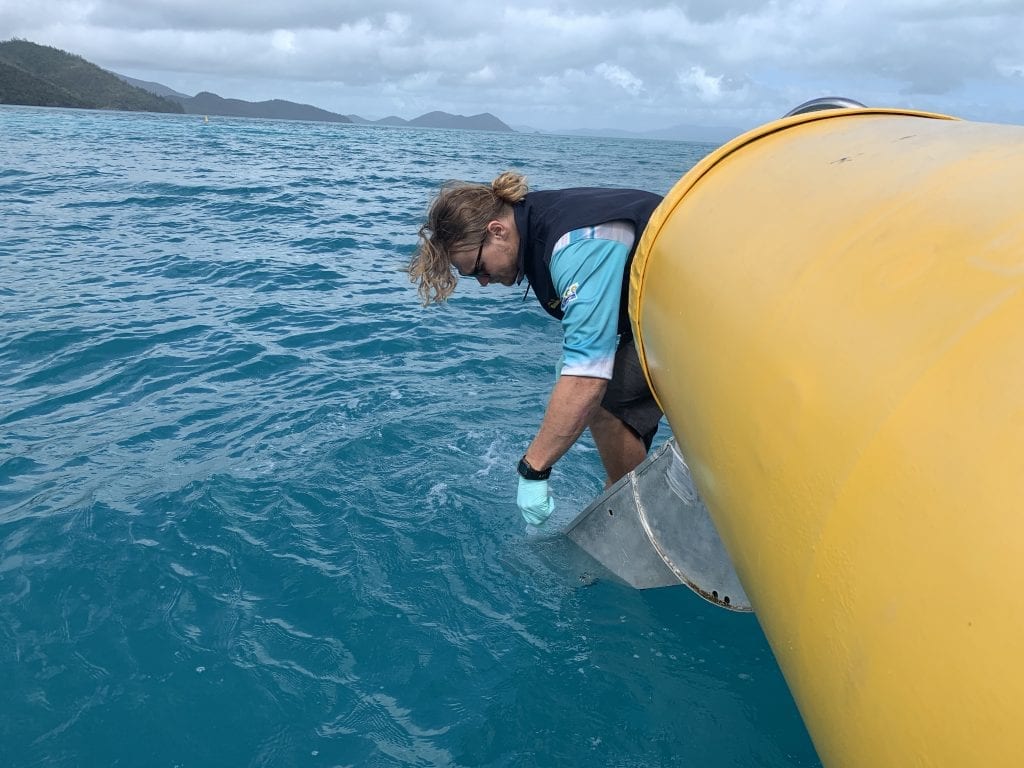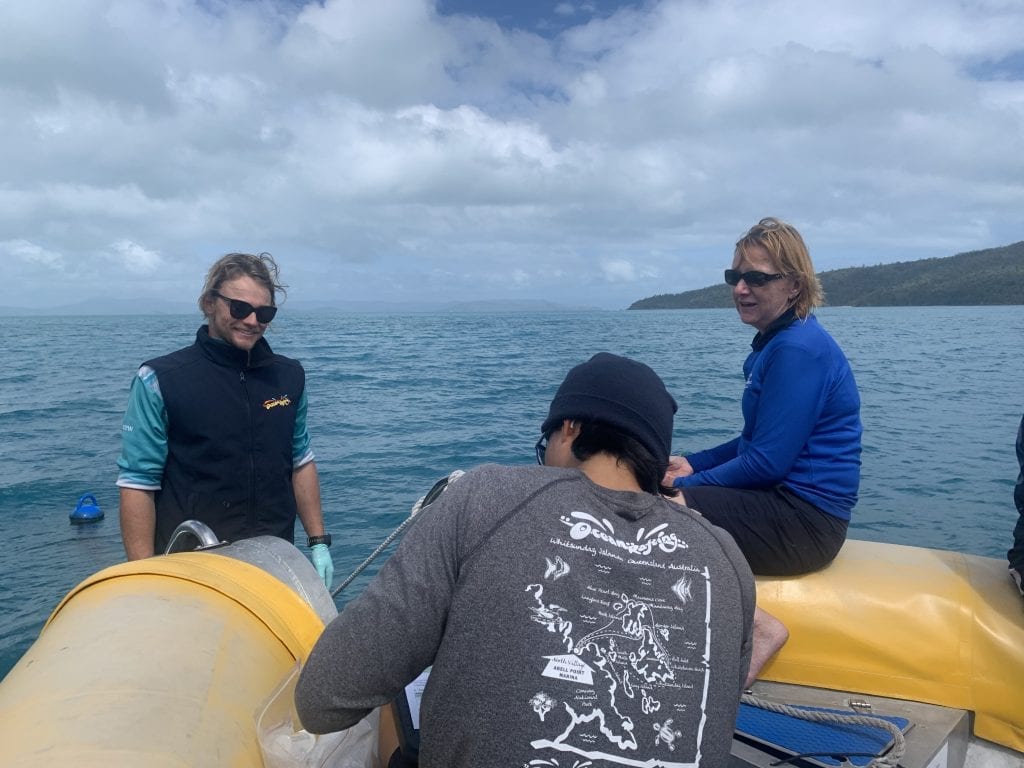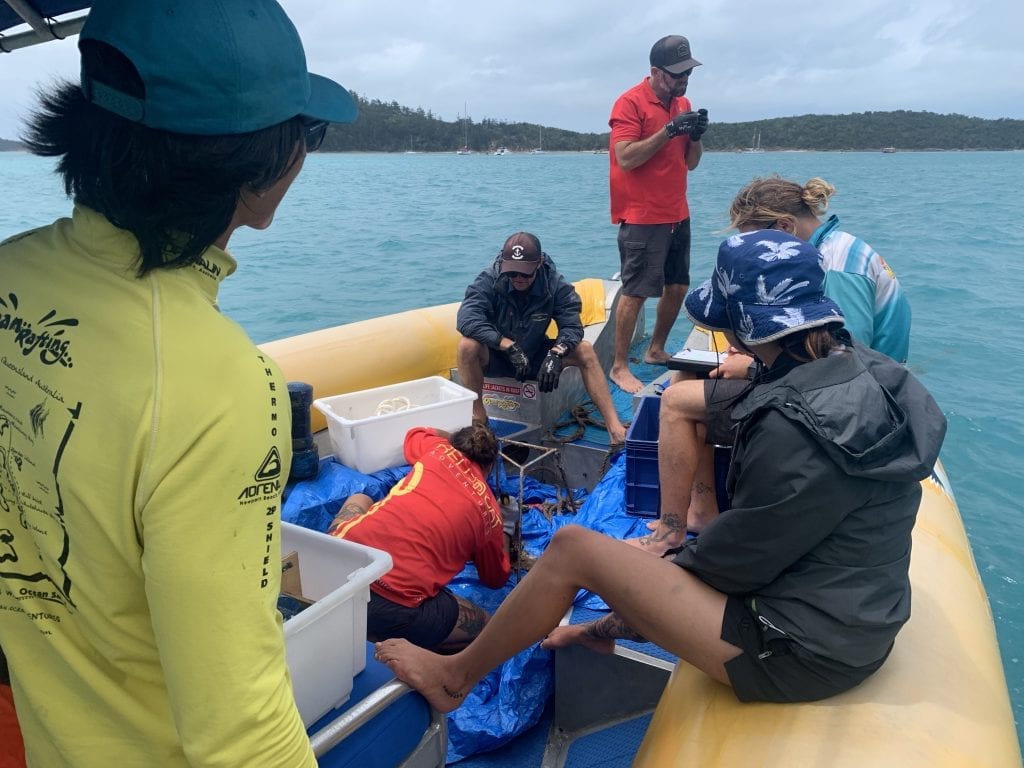This week an additional three staff members took part in a fresh round of training in the Whitsunday water quality monitoring citizen science project. Ocean Rafting has been involved in this Blueprint for Tourism operators since February 2020 and were able to repurpose vessels under Covid-19 guidelines to continue to collect this valuable data during quieter periods throughout the lockdown.
Ocean Rafting now has five of the Whitsundays nine staff trained to continue this citizen science project, collecting water samples and maintaining data loggers at two sites in the Whitsundays. This training was conducted by JCU: James Cook University with field specialists Dr Shelley Templeman and Dr Jordan Iles from JCU TropWater delivering the training.
Part of the training included taking the fifth set of water samples for the program. Despite the challenges the tourism industry faces, there is still strong support for the project, with new assistance being provided from South Pacific Yachting, who have donated equipment crucial to the project and Coral Sea Marina providing new space for operators to work in to process water samples once they are collected.
Jan Claxton, Principal at Ocean Rafting said: “Water quality monitoring has been on our Ocean Rafting wish list for many years and it is so exciting that we have an opportunity to be involved right now. These uncertain times are filled with challenges for tourism and it has been such a positive for our passionate team to get involved in this project which is so important for understanding our environment and the places we visit daily around the Whitsunday Islands.”
Data so far has highlighted the increased wave action and turbidity that occurred in the Whitsundays as a result of Tropical Cyclone Gretel that was offshore in March. North Queensland Bulk Ports Corporation CEO Nicolas Fertin said the port authority was delighted to support the program and assist tourism operators to learn new skills for the benefit of the environment. “We’re honored to be able to support tourism operators in the Whitsundays, especially during this difficult time.” Mr Fertin said. “We share the same passion for the region’s environment and the reef. Collecting valuable data on effects of natural conditions on water quality and turbidity is really important and it’s great to see this program’s data sets emerging. Our own water quality monitoring program with TropWATER and JCU collects almost 900,000 individual marine water quality records every year across our four ports of Abbot Point, Weipa, Mackay and Hay Point.”
This project is funded by the partnership between the Australian Government’s Reef Trust and the Great Barrier Reef Foundation, and North Queensland Bulk Ports Corporation, with support from Reef Catchments, Whitsunday Charter Boat Industry Association, James Cook University, Mackay Whitsunday Isaac Healthy Rivers to Reef Partnership, Whitsunday Bareboat Operators Association.

